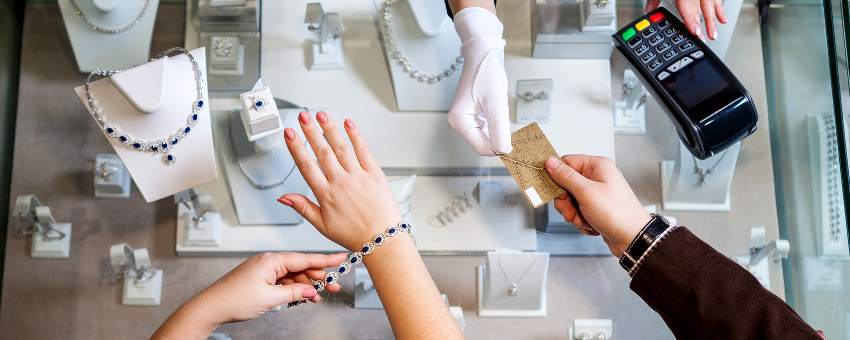8 Ways to Boost Sales with Peer Pressure (And NOT Be a Bully!)
Updated on July 15, 2021 “Peer pressure” is a nasty term. Am I right? It conjures images of middle school bullies forcing otherwise nice children to smoke cigarettes behind a dumpster. It makes us feel powerless. Yuck. So why would we want to use it?
“Peer pressure” is a nasty term. Am I right? It conjures images of middle school bullies forcing otherwise nice children to smoke cigarettes behind a dumpster. It makes us feel powerless. Yuck. So why would we want to use it?
BECAUSE… The meaning behind peer pressure is actually NOT BAD. And can be REALLY GOOD for your marketing. In the marketing world, we even have a nice term for it, so you don’t have to feel bad…
Social Proof: The general principle that people are influenced by social pressure, especially in situations without set rules.
Examples:
Testimonials:
- “Before Product X, it took me 2 hours to get my kids ready for school. But now, my morning routine takes 45 minutes, and everyone is happier!”
Reviews:
- “My Product X came in the mail yesterday and it is exactly as advertised. I’m SO happy with this purchase.”
Endorsements:
- “Product X has made me more efficient, focused, and productive at work.” –Productivity Expert
Statistics:
- “Billions Served” –McDonald’s
Social proof is kind of a buzzword right now, but it is also a powerful motivator, which means it is your best friend when it comes to marketing! Aaaand, it is becoming a more powerful tool with each passing day thanks to our friend the internet…
- Over 70% of Americans look at product reviews before they make a purchase.
- Almost 63% of consumers state they are more likely to purchase from a site that features product ratings and reviews.
Social proof is clearly compelling to prospective customers, so it is in your best interest to use it effectively. But, how?
There are 8 laws to live by when implementing social proof into your direct mail marketing efforts:
1. Stay Away From Negative Social Proof!
Positive social proof: Lots of people use X and their lives are better because of it!
Negative social proof: Lots of people use X and experience BAD results. Boo!
Research finds that the compelling information for most people is how many people are doing it, not the results. So if you say “Tons of people are using our competitor’s product and it’s hurting the environment!” All your prospects hear is, “Everyone is using Competitor X’s products!” Not what you were going for.
Stick to positive social proof in your postcards and other marketing efforts. Steer clear of negative social proof, because it hurts more than it helps.
2. Positive Social Proof is a Stronger Motivator Than Saving Money
This may be hard to believe (because there aren’t many things more compelling to the average human than keeping money in their pockets), but there was a fascinating study published by the Wall Street Journal that proved people were motivated more by strong social proof than significant savings in their monthly utilities bill. In the study, they tested 4 signs…
Sign #1: Informed customers they could save $54 a month on their utilities bill.
Sign #2: Informed customers they could prevent the release of 262 pounds of greenhouse gas every month.
Sign #3: Promoted conserving energy as the socially responsible thing to do.
Sign #4: Informed customers that 77% of their neighbors were already actively using fans to conserve energy.
The results came in and Sign #4 won! So positive social proof was more compelling than protecting the environment, making socially responsible choices AND even saving money. Nothing motivates like the power of social influence. Literally.
3. Social Proof (Like Most Marketing) is Better With Pictures
According to a recent study on increasing the believability of statements, people are more likely to accept a statement as true if it is associated with a picture.
Testimonials are one of the most powerful social proof tools at your disposable, but you CAN make them even more influential by adding a picture of the person giving the testimonial.
NOTE: Be sure to use high-quality pictures or you’ll be undermining your results.
4. People are Influenced by People Like Them
Who wants to take advice from someone they can’t relate to? I know I don’t. It turns out I’m not alone either. We may not like to admit it, but we all subconsciously choose things that resemble us or remind us of ourselves.
In terms of social proof, that means you should find your “ideal prospects,” the people who already need the products or services you offer, and publish as many case studies or testimonials from customers who are similar to them as possible. The more specifically you can target your ideal prospects, the more compelling you can make your social proof, by making it highly relatable to those prospects.
5. Don’t Drink the Haterade
There will always be those nasty people who go out of their way to write angry reviews and post them everywhere they possibly can, right? Many small business owners won’t use social proof for fear of getting that one problematic ex-customer reviewing them! DO NOT FEAR THE HATERS! Think about it: when a ton of customers give 4 and 5 star reviews, and then reviewer rants on for several paragraphs about how bad the business is, what goes through your mind as the reader? You think the ranter is off his/her rocker! Right? You actually feel sorry for the business.
So don’t worry about getting bad reviews. Everyone has them, and as long as your good reviews outweigh the bad ones, you will be just fine! Plus, that one bad review actually adds some credibility to your business and shows just how transparent you really are!
6. Great Stories Sell
Stories are undervalued. Research has found that personal stories are actually more convincing than statistics, because stories stick in the minds of prospects better than averages and percentages do.
The latest research on storytelling has taught us there are two reasons stories are such an effective form of social proof:
- People are naturally inclined to learn from stories, so we give them more credibility. (Just think of those ancient Greek stories that were passed down orally for years just because people REMEMBERED them.)
- Stories put listeners in the shoes of the storyteller, which gets them involved emotionally and feels less like marketing to them.
Just think about it this way: Which line is more convincing?
- Company A has a 100% Customer Satisfaction Guarantee.
- John Smith purchased Company A’s product and now his business makes more money every month, has expanded into new markets, AND he has more time to spend with his kids.
The second one helps prospects visualize how the product benefits their lives, and stressing benefits is a highly effective marketing strategy.
7. Influential Endorsements Are Highly Compelling
You can bring extra credibility to your business by publishing an endorsement or testimonial from an influential person or an established industry leader. Prominent figures are already seen as credible by the average person, so a recommendation for your company extends that credibility to your brand. Prospects who read the endorsement automatically like your company more, because of your association with someone they like and respect. This phenomenon is called the “Halo Effect,” and it really works!
8. No Social Proof is Better Than Meager Social Proof
Social proof is great, but underwhelming social proof is very NOT great. This is especially evident in social media. Imagine a company has a Facebook page with only 15 Likes…
A prospect visits this Facebook page and makes one of three conclusions about the company:
1. It isn’t trustworthy.
2. It is too new to be credible.
3. It offers products or services that are just plain bad.
It actually looks better to prospects if you don’t publish the amount of Likes you have on your page if you don’t have a substantial following yet. Always present positive, impressive social proof to your prospects.
The times they are a-changin’. So if you haven’t already, start implementing social proof in your direct mail campaigns and other marketing. These 8 laws will make sure you do it right!
Best,
Joy





